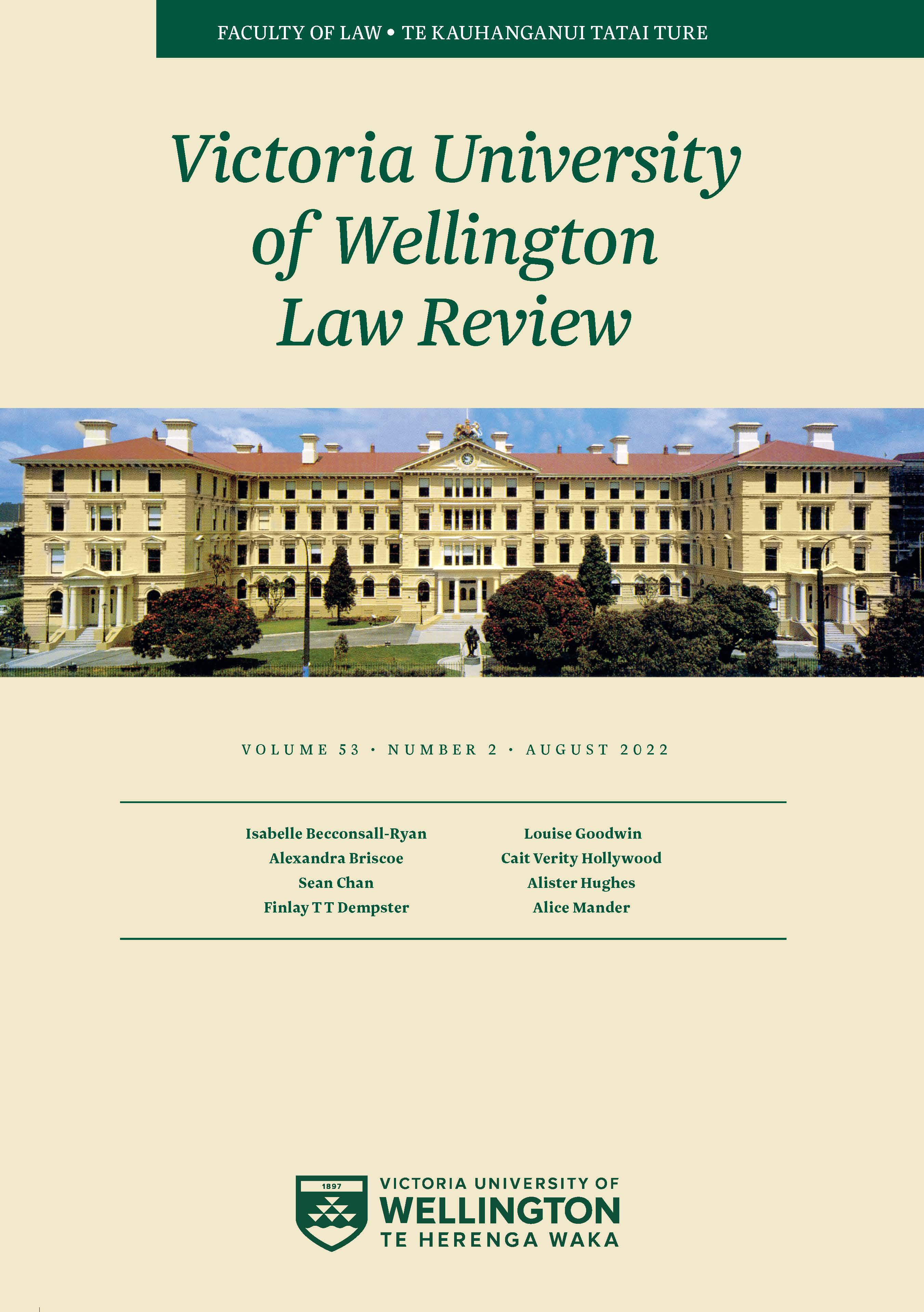The Stories That Cripple Us: The Consequences of the Medical Model of Disability in the Legal Sphere
DOI:
https://doi.org/10.26686/vuwlr.v53i2.7765Abstract
The legal sphere in Aotearoa is becoming more aware of its historically poor representation of gender and racial minorities. However, disabled people continue to be excluded and are often not recognised as an oppressed social group. When stories about disabled people are told in the legal sphere, our existence is diminished to medicalised narratives. These stories pathologise our existence, perpetuating a sense of othering for disabled people. This has a particular impact on disabled students of the law, who are exposed to negative attitudes towards disability through the judiciary and the critical avoidance of disability issues by legal academics. This article demonstrates how the pervasiveness of the medical model in judicial language and legal pedagogy fails to create a space of belonging for disabled people, failing the one in four members of the New Zealand population who are disabled. Overall, it demonstrates a need to undergo a "cripping" of legal education by incorporating socially oriented models of disability into legal study. This will require an adoption of both the traditional social model of disability and Whānau Hauā, an indigenous model of disability. Only by dislodging the medical model of disability will the law become a space of belonging for disabled people.
Downloads
Downloads
Published
How to Cite
Issue
Section
License
Authors retain copyright in their work published in the Victoria University of Wellington Law Review.


